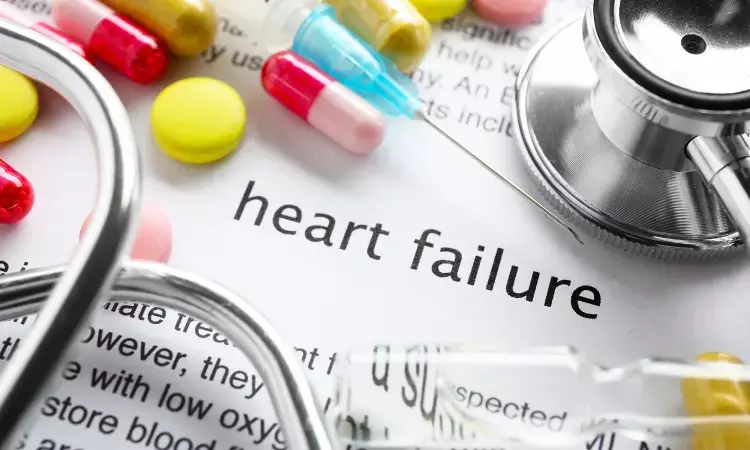- Home
- Medical news & Guidelines
- Anesthesiology
- Cardiology and CTVS
- Critical Care
- Dentistry
- Dermatology
- Diabetes and Endocrinology
- ENT
- Gastroenterology
- Medicine
- Nephrology
- Neurology
- Obstretics-Gynaecology
- Oncology
- Ophthalmology
- Orthopaedics
- Pediatrics-Neonatology
- Psychiatry
- Pulmonology
- Radiology
- Surgery
- Urology
- Laboratory Medicine
- Diet
- Nursing
- Paramedical
- Physiotherapy
- Health news
- Fact Check
- Bone Health Fact Check
- Brain Health Fact Check
- Cancer Related Fact Check
- Child Care Fact Check
- Dental and oral health fact check
- Diabetes and metabolic health fact check
- Diet and Nutrition Fact Check
- Eye and ENT Care Fact Check
- Fitness fact check
- Gut health fact check
- Heart health fact check
- Kidney health fact check
- Medical education fact check
- Men's health fact check
- Respiratory fact check
- Skin and hair care fact check
- Vaccine and Immunization fact check
- Women's health fact check
- AYUSH
- State News
- Andaman and Nicobar Islands
- Andhra Pradesh
- Arunachal Pradesh
- Assam
- Bihar
- Chandigarh
- Chattisgarh
- Dadra and Nagar Haveli
- Daman and Diu
- Delhi
- Goa
- Gujarat
- Haryana
- Himachal Pradesh
- Jammu & Kashmir
- Jharkhand
- Karnataka
- Kerala
- Ladakh
- Lakshadweep
- Madhya Pradesh
- Maharashtra
- Manipur
- Meghalaya
- Mizoram
- Nagaland
- Odisha
- Puducherry
- Punjab
- Rajasthan
- Sikkim
- Tamil Nadu
- Telangana
- Tripura
- Uttar Pradesh
- Uttrakhand
- West Bengal
- Medical Education
- Industry
SGLT-2 inhibitors reduce mortality risk in HF with reduced EF but not in HF with preserved EF

China: In a new study published in Diabetes Research and Clinical Practice it was seen that in individuals with heart failure (HF) with reduced Ejection Fraction (HFrEF), sodium-glucose cotransporter-2 (SGLT-2) inhibitors lowered the risk of cardiac mortality, but not in those with HF with preserved ejection fraction (HFpEF).
In 2015, around 40 million individuals worldwide died as a result of heart failure. The prognosis of HF is quite dismal; the 5-year survival rate of HF patients is around 50%. Most trials examining the efficacy of SGLT-2 inhibitors included cardiac death as a secondary endpoint; hence, most studies lacked statistical power to assess the cardiac death outcome. As a result, Lingyue Zhao and colleagues conducted a meta-analysis to assess the efficacy of SGLT-2 inhibitors in patients with various forms of HF.
PubMed, the Cochrane Library database, and clinicaltrials.gov were searched for randomized controlled trials (RCTs) comparing sodium-glucose cotransporter-2 inhibitors to placebo in patients with HF. For evidence synthesis, a random-effects model was applied. Cardiac death was the main goal.
The key findings of this study were as follows:
1. 13 studies were included in this trial (12 RCTs).
2. Sodium-glucose cotransporter-2 inhibitors decreased the aggregate endpoint of cardiac death or rehospitalization due to HF (HHF) and HHF but not cardiac death in patients with HF with preserved ejection fraction (HFpEF).
3. Sodium-glucose cotransporter-2 inhibitors lowered the overall endpoint of cardiac death or HHF and the specific endpoints of cardiac death and HHF in individuals with HF with reduced EF (HFrEF).
In conclusion, according to the findings of this investigation, the effectiveness of SGLT-2 inhibitors in lowering the risk of cardiac mortality is related to the type of HF. The therapeutic effect of SGLT-2 inhibitors for individuals with HFrEF was extensive, but the advantage of SGLT-2 inhibitors for individuals with HFpEF was limited to lowering the incidence of HHF but not cardiac mortality.
Reference:
Zhao, L., Guo, W., Huang, W., Wang, L., & Huang, S. (2022). Benefit of sodium-glucose cotransporter-2 inhibitors on survival outcome is related to the type of heart failure: A meta-analysis. In Diabetes Research and Clinical Practice (Vol. 187, p. 109871). Elsevier BV. https://doi.org/10.1016/j.diabres.2022.109871
Medical Dialogues consists of a team of passionate medical/scientific writers, led by doctors and healthcare researchers. Our team efforts to bring you updated and timely news about the important happenings of the medical and healthcare sector. Our editorial team can be reached at editorial@medicaldialogues.in.
Dr Kamal Kant Kohli-MBBS, DTCD- a chest specialist with more than 30 years of practice and a flair for writing clinical articles, Dr Kamal Kant Kohli joined Medical Dialogues as a Chief Editor of Medical News. Besides writing articles, as an editor, he proofreads and verifies all the medical content published on Medical Dialogues including those coming from journals, studies,medical conferences,guidelines etc. Email: drkohli@medicaldialogues.in. Contact no. 011-43720751


